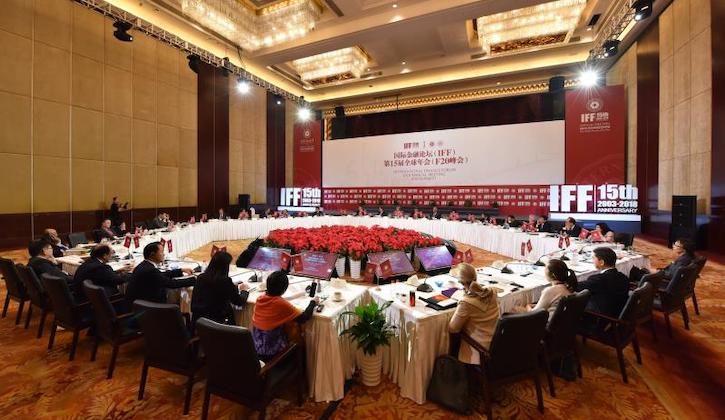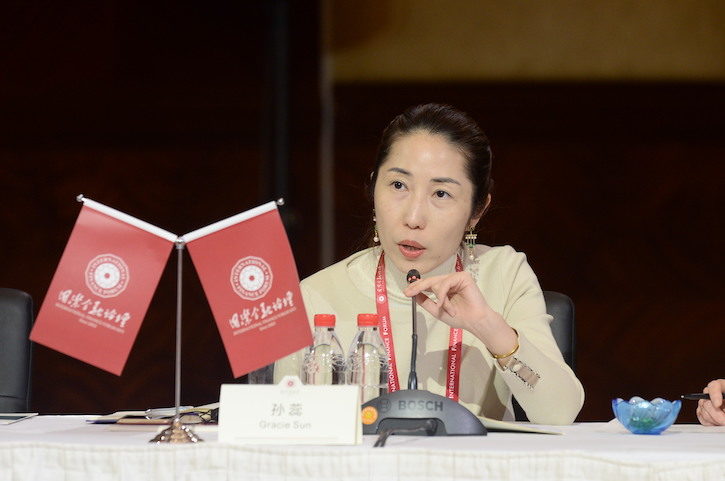
The 15thAnnual Conference of the International Finance Forum (IFF) was held in Guangzhou on November 23-25, 2018 with the theme “New Globalization – A Path to the Future.” The in-depth discussion focused on the direction of future development in the era of new globalization, the challenges and opportunities faced by China and the rest of the world, and ways to resolve crises and promote cooperation and growth.
Another important item on the agenda of this year’ conference was the announcement of the new board members. Zhou Xiaochuan, Vice Chairman of the 12th Chinese People’s Political Consultative Conference (CPPCC) and former Governor of the People’s Bank of China (PBOC), will be the new Chairman. New board members include Gloria Macapagal Arroyo, former President of the Philippines, Deborah Lehr, Vice Chairman of the Paulson Institute, and Lee Jih-Chu, former Chairwoman of the Bank of Taiwan.
During the IFF Academic Roundtable, approximately 30 prominent Chinese and international scholars and financial experts led by new IFF Chairman Zhou Xiaochuan, Jose Manuel Durao Barroso, former President of the European Commission and former Prime Minister of Portugal, Han Seung-soo, former Prime Minister of South Korea, and Shaukat Aziz, the 23rd Prime Minister of Pakistan vigorously discussed the current international landscape and provided suggestions on China’s new economic and financial development.

Gracie Sun, Senior Advisor of the Paulson Institute and Executive Director of the Green Finance Center, joined the discussion and shared three observations regarding the international situation at the moment and in the next few years:
1) The relationship between China and the United States, the two largest economies in the world, plays an important role in shaping international relations. The two heads of state will meet at the G20 summit in Argentina and are expected to reach a framework agreement on trade.* But trade is only one of the issues and differences between the two countries. China-US relations will enter a “new normal” in the next few years. As a result, consideration should be given to the “new normal” of international relations;
2) In the next 5-10 years or maybe even sooner, innovative technology will develop in a predictable and unpredictable manner, which will have a significant impact in changing current global industrial and economic structures;
3) Climate change is one of the biggest threats to the global economy. However, very few people place a priority on this issue. At the just concluded Bloomberg New Economy Forum, the results of a vote on the “Issues of the Year for 2019” were announced, and climate change only received 8 percent of the votes.
With respect to suggestions on China’s new economic and financial development, Gracie Sun said, “Despite the deceleration of economic growth, China is still one of the fastest growing and most important economies in the world. An all-out effort on promoting green finance will play a pivotal role in China’s industrial upgrading and transformation as well as economic rebalancing. Developing green finance is not only a strategic priority of China, but also in alignment with the mission of the Paulson Institute.”
The Paulson Institute established the Green Finance Center in May this year. We are committed to supporting the vibrant development of the green finance market in China.
*As of publication, the G20 meeting has already occurred. Opinions expressed during IFF Annual Meeting prior.


